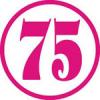
When I came across Jewels by Jessica, I knew she had to be a part of our Interview Series. She's got exactly what 90% of our interview subjects say you need to survive in the cut-throat fashion industry: uniqueness, creativity, business sense and vision.
Jewels by Jessica's has been described as “Frida Kalho meets Marie Antoinette”--which isn't usually the first thing that comes to mind when you think about recycled jewelry. Jessica's unique designs features recycled & revamped vintage jewelry found from her antiquing trips in Europe. Jessica's designs have been featured around the world in exhibitions, galleries, trade shows, fashion events and boutiques.
Jessica's success comes not only from her unique, fun and edgy designs—but also her business ethics. Since one of the things our series is trying to get across to our aspiring designer readers is how to navigate the business side of the fashion industry, Jessica was a perfect subject. We got the opportunity to pick her brain about her both her fashion sense and entrepreneurial experiences:
For any of our readers not familiar with you could you explain your company's/studio's/brand's vision?
The vision of Jewels by Jessica is to offer affordable, yet unique, accessories that make a
statement.
What inspired your brand's unique look?
My love of vintage design is my main inspiration and I translate that into romantic, eclectic, funky and sometimes kitschy modern pieces. Exuberant feminine florals are a constant theme throughout most of my collections.
Did you take any formal training before beginning your label? And how has your
career path progressed over the years?
My official training was as an Interior Designer, and I worked in this field for more than 10 years before switching my focus over to handmade and unique jewelry. After a few years I co-founded the first union and showroom for independent designers in Greece.
As a creative professional how have you handled the business-side to running a fashion studio/brand/company?
I try to pay equal attention to both sides, but the creating part tends to be the most fulfilling part of the business.
How did you initially get your foot into the door of the fashion industry?
After I decided to pursue jewelry making full-time I approached a very well respected Art Shop and first exhibited my pieces there. After that, many retail accounts followed, as well as themed exhibitions, and the like.
If you had the opportunity to start your career (or business) over again would you do anything differently?
I would have done some things earlier than I did.
If you had to describe the business side of the fashion industry briefly to our aspiring designer readers, how would you paint an accurate picture for them?
It takes determination and discipline to be your own boss, which at times is hard, but well worth the effort to keep your business on track and expanding.
Which designers and/or artists influenced you the most as a creative professional?
I admire many Designers and Artists but none have influenced my work directly. I have absorbed elements from their work since early childhood, so it is difficult to credit anything to specific individuals.
What is the most important skill and/or hard lesson you have learned while working in the industry?
That you always have to be critical of your own work, but at the same time confident. You have to exude passion for design.
What was most surprising about working in the fashion industry?
The strong supportive relationships formed with other similar-minded designers.
If you were going to hire a new employee/intern what qualities would you look for in a person and portfolio and where would you look?
I would look for people whose work I have witnessed already. Loyalty and a strong work ethic is important but also a fun personality.
Which role(s) in the fashion industry do you think will offer the best career opportunities moving forward?
PR is a very important aspect that needs redefining but is crucial to most fashion companies these days.
Do you think today's jobs in the fashion industry require more of an artist's touch or business-like ruthlessness?
A combination of both is needed. Depending on what you are focusing on, one part might be more prominent. But without both qualities a designer will be lacking in some way.
Which skills do you consider to be most critical for a career in fashion?
Hard work and originality.
What would you recommend for aspiring fashion professionals looking to break into today's fashion industry?
To seek a niche that is waiting for them. Specialize and conquer.
Check out more interviews at The Fashion-Schools.org Interview Series.





